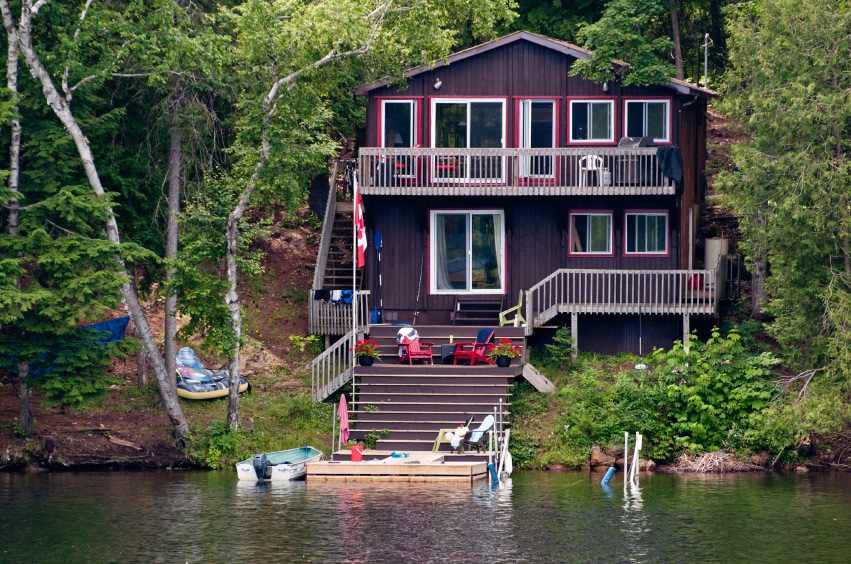
With summer here, thousands of Ontarians head to their cottages to enjoy sunny weekends and tranquil evenings by the lake. However, if you own, rent out, or manage a cottage, it is important to recognize your legal responsibilities to ensure that your property is safe for all visitors and guests.
In this blog post, I will provide an overview of the legal responsibilities of property owners, examine some of the potential hazards that can lead to injury on your premises, outline effective strategies to ensure the safety of your guests, and detail the appropriate steps to take should an accident or injury occur.
Understanding the Occupiers’ Liability Act
Under Ontario’s Occupiers’ Liability Act, you could be held legally responsible if someone is injured on your property due to unsafe conditions. This law defines the duty of care owed by anyone who controls a property, including cottage owners, tenants, property managers, or renters. The Act states:
“An occupier of premises owes a duty to take such care as in all the circumstances of the case is reasonable to see that persons entering on the premises… are reasonably safe while on the premises.” – Occupiers’ Liability Act, s.3(1)
The law does not only apply to property owners. If you rent a cottage, or manage one on someone else’s behalf, you may also be considered an occupier under the law and could share responsibility for ensuring the property is safe.
This duty extends to:
- Guests and visitors
- Short-term renters like Airbnb guests
- Contractors, cleaners, delivery drivers, even trespassers
Common Cottage Hazards That Can Lead to Injury
Injuries at cottages often occur due to:
- Slippery docks and wet walkways
- Broken or improperly constructed stairs, missing railings, and old or damaged balconies
- Fire pits or barbecues too close to seating areas
- Poor lighting around entry points and stairs
- Hidden trip hazards inside or out including on decks, pathways, trails and woods
- Inexperienced swimmers and boaters
These are just a few of the common issues I have encountered in my law practice. Failing to address these hazards could result in you being held liable for any injuries that occur, even if the incident was unintentional or to a trespasser.
How to Protect Yourself and Your Guests
To ensure the safety of your cottage and protect yourself legally, consider these practical steps:
Cottage Safety Checklist:
- Inspect Walkways and Stairs Regularly – Ensure that all pathways, stairs both inside and out, and entrance areas are free from hazards.
- Secure Railings and Decks – Check that all railings, and deck itself are stable and well-maintained.
- Maintain Docks and Ladders – Regular inspections can prevent accidents at the water’s edge.
- Install Proper Lighting – Adequate lighting inside and outside can help prevent accidents during the night.
- Clear Walkways – Keep tools, firewood, and water toys out of high-traffic areas.
- Supervise Equipment Use – While visitors are on the premises of your cottage, ensure that anyone operating equipment, such as barbecues, chainsaws, or boats, is sufficiently supervised, experienced, and, if required, licensed to do so.
- Life Jackets – Make sure all boaters and swimmer have access to a life vest. This is especially important for children and inexperienced swimmers.
- Extinguish Open Flames Properly – Always make sure to properly extinguish all open flames. It is good practice to have a few fire extinguishers handy.
- Dispose of Hazardous Materials Safely – Ensure that hazardous garbage or debris, such as glass, is disposed of in an appropriate manner.
- Document Repairs – Keep records of all maintenance and safety checks. This can help demonstrate due diligence.
For more information on Cottage Safety Tips, please read our Cottage Safety Tips for You & Your Guests Part 1 and Summer Cottage Safety: Part Two.
Host Liability
When alcohol is consumed at your cottage, you must be especially vigilant in protecting visitors. Although you may not be intentionally creating a situation of danger for a visitor, if alcohol is served and you fail to act to prevent a foreseeable harm to them, then you may be exposed to liability.
What to Do If Someone Gets Injured
If an injury occurs on your property, it is crucial to follow these steps:
- Provide Immediate Medical Attention – Make sure the injured person receives proper care.
- Document the Scene and Conditions – Take photos to record the situation and conditions.
- Report the Incident – Notify your insurance company about the occurrence.
- Consult a Lawyer – A personal injury lawyer can help you understand your rights and obligations.
Your Insurance Policy Matters
Cottage life embodies a spirit of freedom and relaxation, but it also carries the responsibility of ensuring safety. Taking the time to inspect your cottage and implement safety measures will not only protect your guests but also give you peace of mind.
Additionally, ensure you have an appropriate insurance policy in place. This can often be added to a homeowner’s policy as a “Seasonal Dwelling” endorsement. If you have a watercraft of any kind, ensure that your insurer knows the exact specifications to make sure that you have proper coverage. Comprehensive personal liability coverage is essential to protect against claims arising from accidents at the cottage.
Injured at a Cottage or Unsure About Your Liability?
If you have been injured on someone else’s property, or would like to understand your responsibilities as a property owner better, don’t hesitate to reach out for a free consultation. Being informed and prepared can help you enjoy the beauty of Ontario’s cottage country while keeping potential risks at bay.






